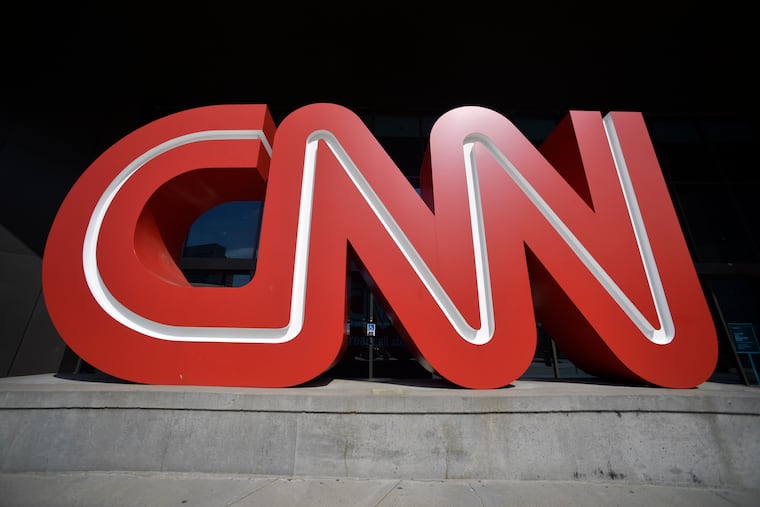I don’t watch cable news much anymore. Here’s why.
Recently, I hosted a screening of "Trustworthy," a new documentary that asked Americans what they think about the state of media in the U.S. No surprise: It isn't good.

When I decided to pursue a career in journalism, it wasn’t that long after the glory days of the uncovering of the Watergate scandal that took down Richard Nixon. Back then, Americans viewed us as heroes, champions of the people.
I worked at newspapers all over because I admired reporters such as Bob Woodward and Carl Bernstein. I sacrificed time I could have spent with my family — or even starting one of my own — because I wanted to do this work. I’ve watched my colleagues do the same, only to end up working for a shrinking industry that Americans rank not far above used car salespeople.
Today, Americans trust journalism less than ever. A recent poll by the Knight Foundation and Gallup discovered that only 34% of Americans trust the news media to be accurate and fair; more — 38% — said they have “no trust at all” in the media.
Recently, I hosted a screening of Trustworthy, a new documentary on the subject of media distrust, at the Fitler Club, which was followed by a panel discussion. Executive producer Stephany Zamora, a Silicon Valley tech executive, created it after watching Trump supporters storm the U.S. Capitol on Jan. 6, 2021. She woke up the following morning determined to explore the media and democracy and whether it’s possible to find common ground.
Despite having zero filmmaking experience, Zamora set off on a 5,300-mile bus journey across the country interviewing academics, journalism experts (including Inquirer editor and senior vice president Gabriel Escobar), and ordinary Americans about what they think about the state of media in the U.S.
Americans trust journalism less than ever.
No surprise: It isn’t good.
Viewers said they felt they were getting “pushed information,” “a lot of it is crazy.” A man in a diner told them: “It makes me feel depressed because I don’t know which one to believe.”
All it takes to discredit news media are two words, Escobar notes in the documentary: “Fake news. When people say ‘fake news’ and it is aimed at staining the work that journalists do, there’s great danger in that.”
The documentary was well done, but it left me feeling dejected — about both the survival of modern journalism and the future of American democracy.
As Trustworthy points out, the press is the only profession mentioned in the U.S. Constitution. Our Founding Fathers understood the importance of a free press and made a point of guaranteeing it in the Bill of Rights. They recognized that without it, democracy will die.
That said, I also understand why so many are fed up with the media and have lost faith in it. I place a lot of blame on cable news.
In fact, I don’t watch much cable TV news programming anymore.
I used to keep it on all the time as backdrop; I’d fall asleep listening to MSNBC’s The Rachel Maddow Show.
I find much of the political horse racing commentary and partisan politicking a complete turnoff. I long for the days when CNN was a 24-hour news source, instead of one that platforms so much political opinion. When I learned last year that CNN had hired a new head honcho to revitalize the network, I was hopeful that it would somehow inch its way back to its no-frills roots.
But whatever vestige of naïve optimism I was harboring in CNN’s ability to shift back to its origins was snuffed out after former President Donald Trump’s disastrous town hall last month, during which he used the network to spew lies, including about the election being stolen. The Atlantic’s recent eyebrow-raising piece about the network’s CEO Chris Licht and his fumbles at the helm are further evidence of that sinking ship’s inability to right itself anytime soon. (Licht was pushed out earlier this month.)
» READ MORE: On CNN, lying Trump was a late-night comedian for an America I didn’t recognize | Will Bunch
Most Americans don’t differentiate between the old-fashioned, shoe-leather reporting newspapers produce about their local school board and city hall, and the incendiary commentary that Tucker Carlson spewed at Fox News before getting fired.
“It’s very hard to determine what the truth is anymore,” Rochelle Ritchie, a media consultant and guest political TV commentator, points out in the documentary. “There was a point in time where you knew what a journalist was. I don’t think people know what a journalist is. I don’t think that people even know what news is anymore.”
To help people distinguish between journalism and commentary, New Jersey has begun to require students in grades K-12 to take media literacy classes to help them learn to distinguish fake news they might see on social media from information that has been vetted by a reliable journalistic organization. This is a good thing and something every state should do.
In the meantime, I have another solution: Stick to newspapers, which delineate between opinion and straight news. Also, turn off 24-hour cable news, which too often blurs the line between fact and opinion and hypes events to boost ratings.
That’s what I do. I’m way less triggered that way. I sleep better, too.